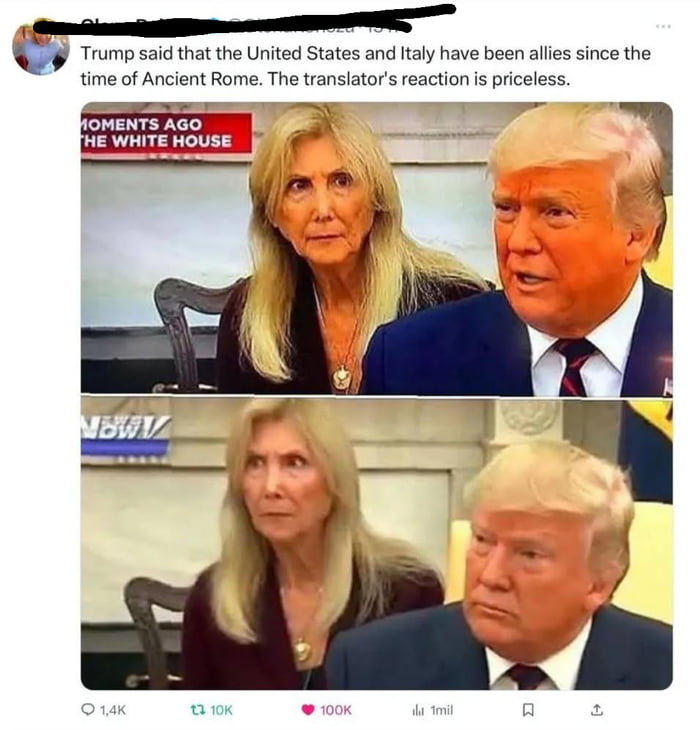this post was submitted on 18 Dec 2024
793 points (88.9% liked)
Facepalm
499 readers
1 users here now
Anything that makes you apply your hand to your face.
founded 8 months ago
MODERATORS
you are viewing a single comment's thread
view the rest of the comments
view the rest of the comments

My take is that he sees himself as Julius Caesar reincarnate, who spelled the end of the Republic, and wants to be the first emperor of the USA. If you read about the last days of the Republic there are so many historically rhyming events that with the current state of America, a repeat of history seems almost inevitable. A spate of military wins means Rome becomes very rich very quickly, disband rival military power which leads to pirates and banditry, widespread extremes of wealth and poverty, politicians riling the public up into a frenzy with populist talking points, using corrupt judiciary system to punish their political opponents, plebs forcing themselves in on senate discussions, Krassus was a mega oligarch banker who bankrolled politicians and held debts as favours to call on, the Bona Dea scandal, Clodius being unceremoniously taken to court for sneaking into a women-only festival, who is betrayed by another political rival Sicero only to then be equitted (jury was bribed), and the subsequent crossing of the Rubicon by Caesar, leading to insurrection, more political assassinations, and the fall of the Republic.
I would say he is as spiteful and vengeful as Clodius (and feels wronged in the same way he did by the court cases against him), is as ambitious as Caesar, has Musk as his Krassus-figure backing him, craves attention and celebration of himself like Pompey, and thinks he is as important and catalytic to political change as the Gracchus brothers were.
Trump aspires to be as awful and as "great" as the conniving ruling class of ancient Rome, because he us just as morally bankrupt as many of them.
However all of these observations seem at odds with the way he presents himself - seemingly senile, lexicon of a five-year-old, and lacks any of the charisma and knack for timing that the great orators of the Senate had. In comparison, Trump as an isolated figure is but a skidmark compared to the intellectual brilliance of the Roman elite.